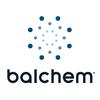Dairy diet components that affect immune function
Published: December 18, 2015
Source : Jeff Mikus, Ph.D., Dairy Technical Service, Specialist at Diamond V.
A robust immune system is vital for dairy cows to live long, healthy, and productive lives. Multiple factors affect the immune system, and, arguably, good nutrition is one of the most significant keys to efficient immune function. Research shows a properly functioning immune system uses key diet components, including vitamins, minerals, energy, and antioxidants.
Vitamins Immune system function can be significantly impaired when vitamins are deficient in the diet. Vitamins act to support the immune system in several ways, including immune cell production, antibody production, and antioxidant protection.
Vitamin A is a fat-soluble vitamin that plays an important role in the innate immune system, which is essentially the first line of immune defense and includes skin tissue, mucus membranes, gastro-intestinal secretions, and specialized cells that attack infectious agents. This immune defense is typically a non-specific response.
Vitamin A is stored in the liver and is vital for the integrity of skin and mucus membranes. It also is needed for the proper function of natural killer (NK) cells and white blood cells (Hersom, 2013). Vitamin A is usually found in adequate amounts in the diets of grazing animals. However, its supplementation is common in confinement animals. Vitamin A supplementation may not provide a measurable benefit unless the animals are deficient.
Vitamin E is a fat-soluble vitamin that has received a lot of attention over the last few years. Often characterized as an antioxidant, vitamin E also is needed for proper functioning of both the innate immune system and the adaptive immune system, which builds individualized responses to infectious agents.
Supplementation of elevated levels of vitamin E has been shown to increase the responsiveness of the immune system in dairy cattle (Sordillo, 2009).
Minerals
A significant amount of research has looked into the roles of trace minerals. Much of this work has been conducted with a focus on immune function. Although several trace minerals have appeared to have some effect on the immune system, selenium (Se) and zinc (Zn) have been the two most often researched.
Selenium is an essential trace mineral that is utilized by both the innate and adaptive immune systems. Its most important function is as a component of glutathione peroxidase. This enzyme is a significant antioxidant that helps with protection of oxidative damage to cells. Selenium also is involved in improving neutrophil and antibody function (Sordillo, 2009 and Hersom, 2013). Selenium is often supplemented to animals in areas with little or no selenium in the soil and to animals in confinement.
Zinc is an essential trace mineral that is typically supplemented to animals. It is required for many enzymatic processes in animals and is important for both the innate and adaptive immune systems. Zinc helps with tissue integrity and enzyme function related to immune function. Supplementation in cattle with adequate zinc status may yield little in the way of a response, but in animals with marginal or deficient levels, the impact is positive (Hersom, 2013).
Energy
The importance of energy in immune function has gained the attention of the scientific community. Two recent studies explored the energy expenditures required to sustain an immune challenge in growing steers and in lactating dairy cows.
The first of these studies challenged growing steers with an endotoxin challenge (Stoakes, 2015a). Following a model used to measure immune responses, researchers dosed animals with the endotoxin lipopolysaccharide (LPS), which stimulated their immune system to mount a defense. After the steers were challenged, the researchers determined that the growing steers utilized glucose at approximately 43 g/hr.
The same researchers also looked at the effect of an LPS challenge in lactating Holstein cows (Stoakes, 2015b). The estimated glucose utilization by lactating cows in this LPS challenge was about 90 g/hr, or 1,080 g for the 12-hour period of the challenge – equivalent to the amount of milk sugar (lactose) in 23 lb of milk!
It’s no surprise that the cows challenged with LPS experienced a significant reduction in milk production when compared to the control animals.
Thus, it's becoming increasingly clear that energy plays a critical role in a properly functioning immune system. The two studies above demonstrate that immune function can be a significant "energy sink" when the immune system is asked to take on a challenge. The amount of energy utilized can be huge and certainly would be expected to affect production and production efficiency, as demonstrated in the lactating cow study.
Antioxidants
Cows undergo significant stressors during certain periods of their lives. These stressors result from many normally occurring events. One of the biggest is parturition. During this period, oxygen consumption increases dramatically because of increased metabolic activity. The biggest contributors to this increased oxygen demand in the transition cow are the rapid increase in fetal growth, the onset of lactation, and subsequent milk production. Additionally, an immune response, occurring at any stage of lactation, can result in significantly more oxygen consumption. Processes demanding oxygen to support these metabolic events produce groups of highly reactive molecules known as "free radicals" or more accurately "reactive oxygen species" (ROS) (Sordillo, 2009).
These ROS groups have the potential to cause oxidative stress, leading to cellular and tissue damage. One of the ways organisms mitigate the damage caused by oxidative stress is by utilization of available antioxidants. Animals use a large array of endogenous antioxidants to reduce ROS damage and research shows that supplementation is a feasible way to provide additional antioxidants and/or precursors to enzymes with antioxidant properties. Several common diet components are either antioxidants themselves or components of antioxidants, including vitamins E and A, carotenes, selenium, zinc, copper, and manganese (Dubeski, 2000).
Antioxidants function in different manners and locations within the body. A diverse mixture of antioxidants can provide additional protection to the animal and limit cellular damage caused by reactive free radicals.
Guidelines for feeding these vitamins and minerals are well established in the National Research Council’s Nutrition Requirements of Dairy Cattle (2001). However, research continues to address the need for antioxidant capacity as well as the optimal levels of, and interactions between, different dietary antioxidants.
Optimal immune function is vital for healthy, efficient milk production. Dietary factors dictate much of the efficiency of immune function. Significant research demonstrates both the need and efficacy of key diet components, both in grazing cattle and those receiving supplements. These components include certain vitamins and minerals as well as energy and antioxidants. Better understanding of how diet Dec - 15 Diamond V 4 components support immune function is playing an increasingly important role in healthy, profitable, sustainable milk production.
References
Dubeski, P. 2000. Alberta Feedlot Management Guide. Agriculture and Agri-Food Canada.
Dubeski, P. 2000. Alberta Feedlot Management Guide. Agriculture and Agri-Food Canada.
Hersom, M. 2013. The Interaction of Nutrition and Health in Beef Cows. http://animal.ifas.ufl.edu/beef_extension/bcsc/2013/pdf/hersom_cows.pdf
Sordillo, L.M., 2009. Impact of Oxidative Stress on the Health and Immune Function of Dairy Cattle. J. Vet. Immunology and Immunopathology. 128:104-109.
Stoakes, S.K., 2015a. Estimating Glucose Requirements of an Activate Immune System in Holstein Steers. J. Dairy Sci. Vol. 98, Suppl. 2. Abstract M40.
Stoakes, S.K., 2015b. Estimating Glucose Requirements of an Activate Immune System in Holstein Steers. J. Dairy Sci. Vol. 98, Suppl. 2. Abstract 364.
Related topics:
Authors:
Diamond V
Recommend
Comment
Share

Would you like to discuss another topic? Create a new post to engage with experts in the community.










